Globally, 285 million people are visually impaired, a quarter of whom live in India, which results in lower employment and lessened productivity. The project aimed at exploring the use of WhatsApp in developing a community-based practice of eye health promotion in a disadvantaged locality bordering a metropolitan city in Eastern India. This project used WhatsApp (as an interventional tool) to create an information resource link on basic eye care between a tertiary city-based healthcare provider and the disadvantaged community. WhatsApp use was facilitated by specially selected local women trained in information usage to disseminate contextual audio-visual information on eye care through multiple supervised ‘educational’ sessions. Perspectives of participants from the disadvantaged community, and changes in their health behaviour were qualitatively explored.
This project confirmed the presence of a significant information gap (hence knowledge gap) on eye care in the face of a high disease burden. Acceptability of WhatsApp based information dissemination amongst the participants was high with reported benefits of increased awareness of eye diseases, their preventative management, remedial measures and the availability of affordable eye care services. Participants found WhatsApp technology appealing and intuitive. The resultant increase in self-confidence, consequent to heightened awareness, boosted social empowerment and enabled study participants to challenge prevalent social and cultural norms. To conclude, this project demonstrated that WhatsApp can be effectively used as a suitable vehicle of information dissemination on eye care in mediating a behavioural change in disadvantaged settings.
Completed Projects:
https://e-space.mmu.ac.uk/627599/
https://pubmed.ncbi.nlm.nih.gov/34192405/
https://journals.sagepub.com/doi/full/10.1177/02666669211013450/






Information can make a difference